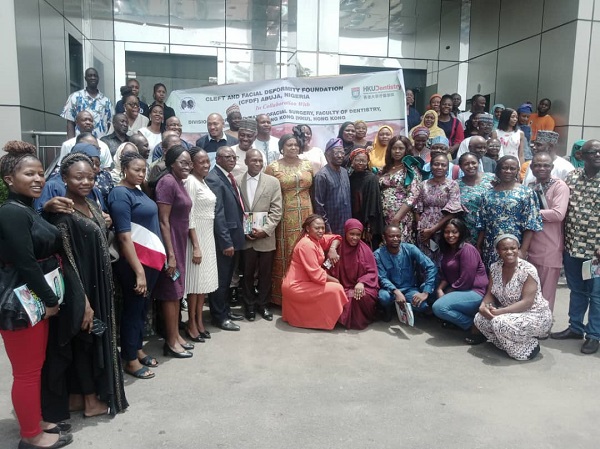
The Minister of Health, Dr. Osagie Ehanire has disclosed that 746 Nigerians die annually from oral cancer complications in the country, noting that this is even as 1,146 oral cancer cases are diagnosed in the country annually.
Ehanire, who was represented by the head of the dentistry division, Federal Ministry of Health (FMOH), Dr. Gloria Uzo-Igwe said this at a one-day oral cancer training today (April 17, 2023) in Abuja.
The training, themed “The use of artificial intelligence in the early detection of oral cancer and oral potentially malignant disorders”, was organised by the Cleft and Facial Deformity Foundation.
Science Nigeria reports oral cancer, also called oral cavity cancer, can develop in any part of the mouth. According to the World Health Organization (WHO), risk factors include tobacco use, heavy alcohol use, and human papillomavirus (HPV) infection. Symptoms include a sore that doesn’t heal, a lump, or a white or red patch on the inside of the mouth.
The minister of health expressed worries that most people were not aware of the devastating effect of oral cancer in the country.
According to him, oral cancer is critical because it can easily deface one’s face, one will be unable to talk or eat and the mortality rate is very high, even higher than that of other cancers.
He said that FMOH is intensifying its awareness campaign to enlighten Nigerians about the dangers of oral cancer and disclosed that plans have been concluded to launch a policy on oral health in the country.
“We have a policy that we are going to launch in November on oral health. Our focus is on prevention. We [will] go to communities and raise awareness.
“We are training our community health workers because there are no oral health workers in the communities. There are no dentists in the communities. Everybody wants to go to the city. We don’t have dental experts in our rural communities, where oral cancers are more prevalent.
“We train health workers in communities so that they can recognise early signs of oral cancer and refer patients to the hospitals where dentists can provide treatment.
“We do not want it to reach the fourth or third stage, as long as they can recognise it and send the patient to the hospital for prompt action,” he explained.
He narrated that the policy’s target should be able to map at least 50 per cent of the population in rural areas and ensure that there are better professionals at the primary health care centres.
According to him, they aim to have a comprehensive centre, at least a dental clinic comprising a dentist, therapist and hygienist, in the three geopolitical zones of every state.
Meanwhile, a facial surgeon, Dr. Bello Alokun said that artificial intelligence is an advancement in technology where the use of computers and information obtained from a patient could predict with more than 90 per cent accuracy whether someone could develop cancer in 10 years.
Alokun said it makes it easier for practitioners to keep a better eye on such people, thereby picking oral cancer in its infancy when it is just developing.
He said that early detection means that cancer can be cured in a particular victim.
“Artificial intelligence is actually in its rudimentary stage in Nigeria. Its use is being explored in different aspects of medicine and other aspects of science. Nigeria is close to zero levels.
“We are collaborating to promote links that can predict when one can develop oral cancer and to spread information among Nigerians about the use of artificial intelligence and oral cancer generally because early detection is the key,” he said.
In her presentation, a professor of dentistry, Prof. Bukola Folashade Adeyemi of the University College Ibadan, said oral cancer has not become prevalent in Nigeria.
She highlighted that over 50 per cent of people diagnosed with oral cancer in the country die every year, emphasising the importance of early diagnosis and regular dental checks. She identified tobacco and alcohol as the most important risk factors for oral cancer, as they alter the body’s ability to handle reactive oxygen species.
While acknowledging that genetic anomalies can also cause the disease, she advised people to avoid exposure to these risk factors, including e-smoking and shisha.
Additionally, she cautioned against perverse sexual behaviour and recommended moderation in the consumption of foods prepared over naked flames, such as ‘suya’ and roasted fish, which contain established carcinogens.
The professor also emphasised the significance of continuous infection as another risk factor and urged people to visit their dentist “at least once a year, if not twice”.
The Ministry of Health is collaborating with the Cleft and Facial Deformity Foundation to promote links that can predict when one may develop oral cancer and spread information on the use of artificial intelligence and oral cancer. The foundation’s training session aims to teach healthcare professionals to recognize early signs of oral cancer and refer patients to hospitals for prompt treatment.
The Cleft and Facial Deformity Foundation is an organisation that seeks to create awareness and provide free surgeries for patients with cleft lips and facial deformities.

